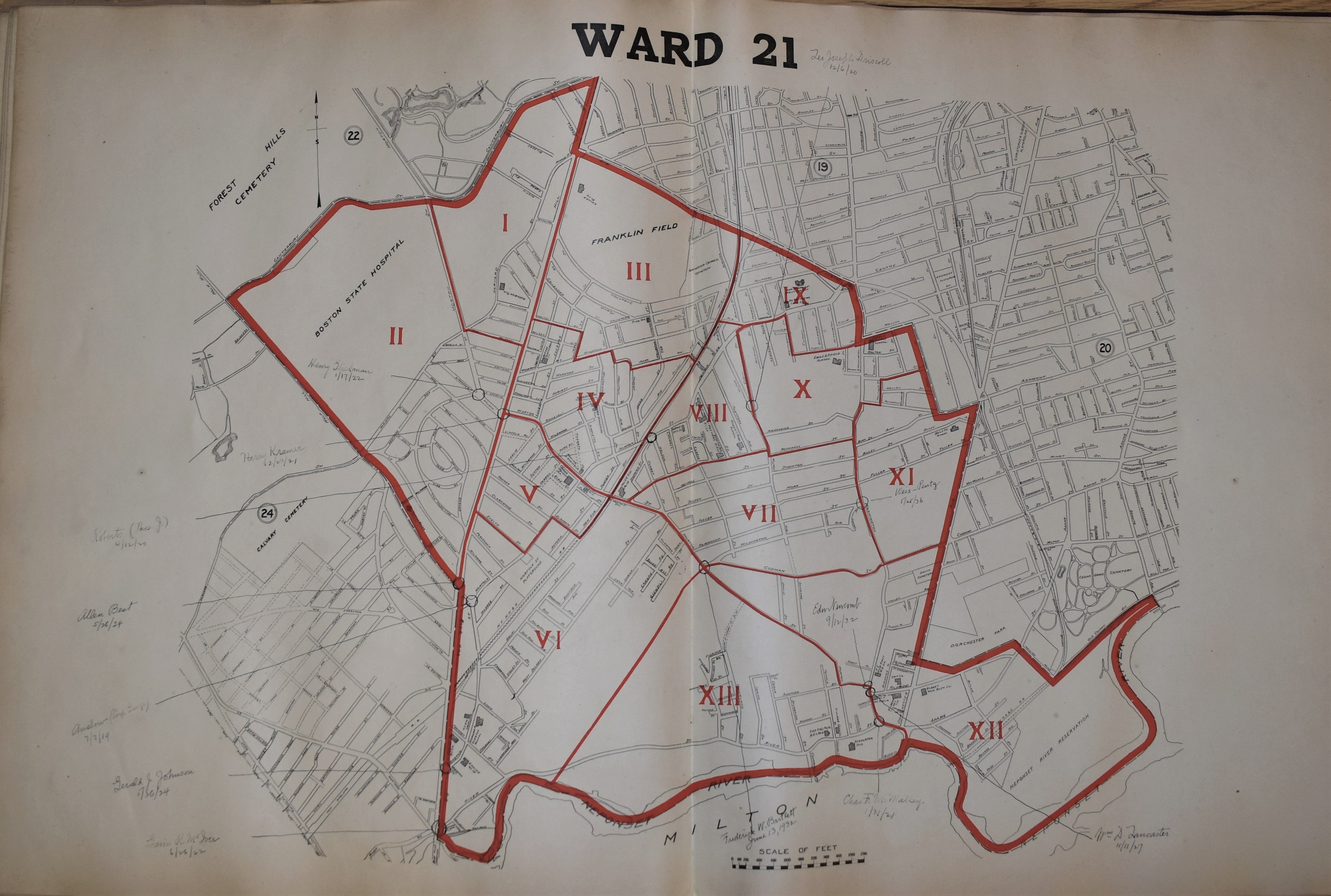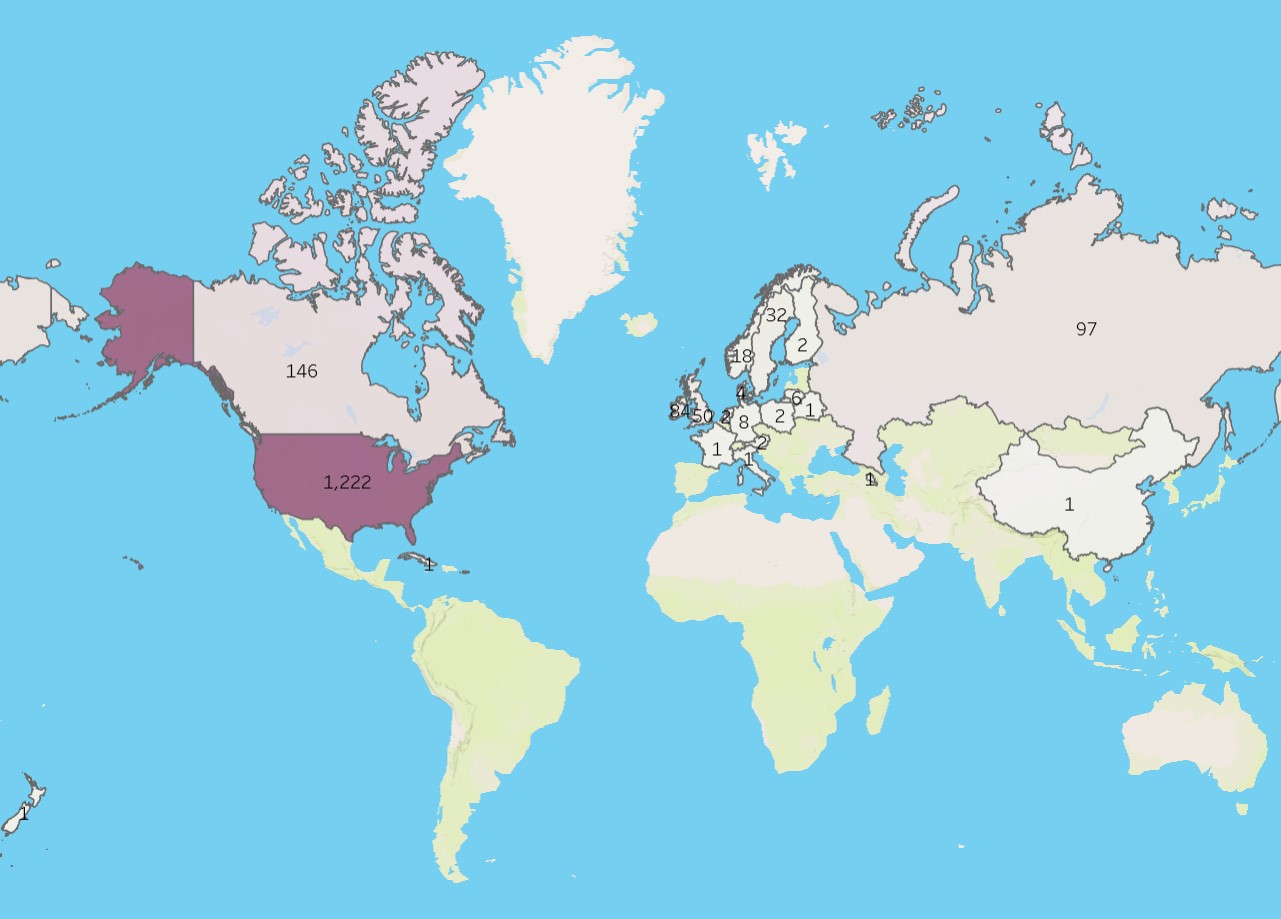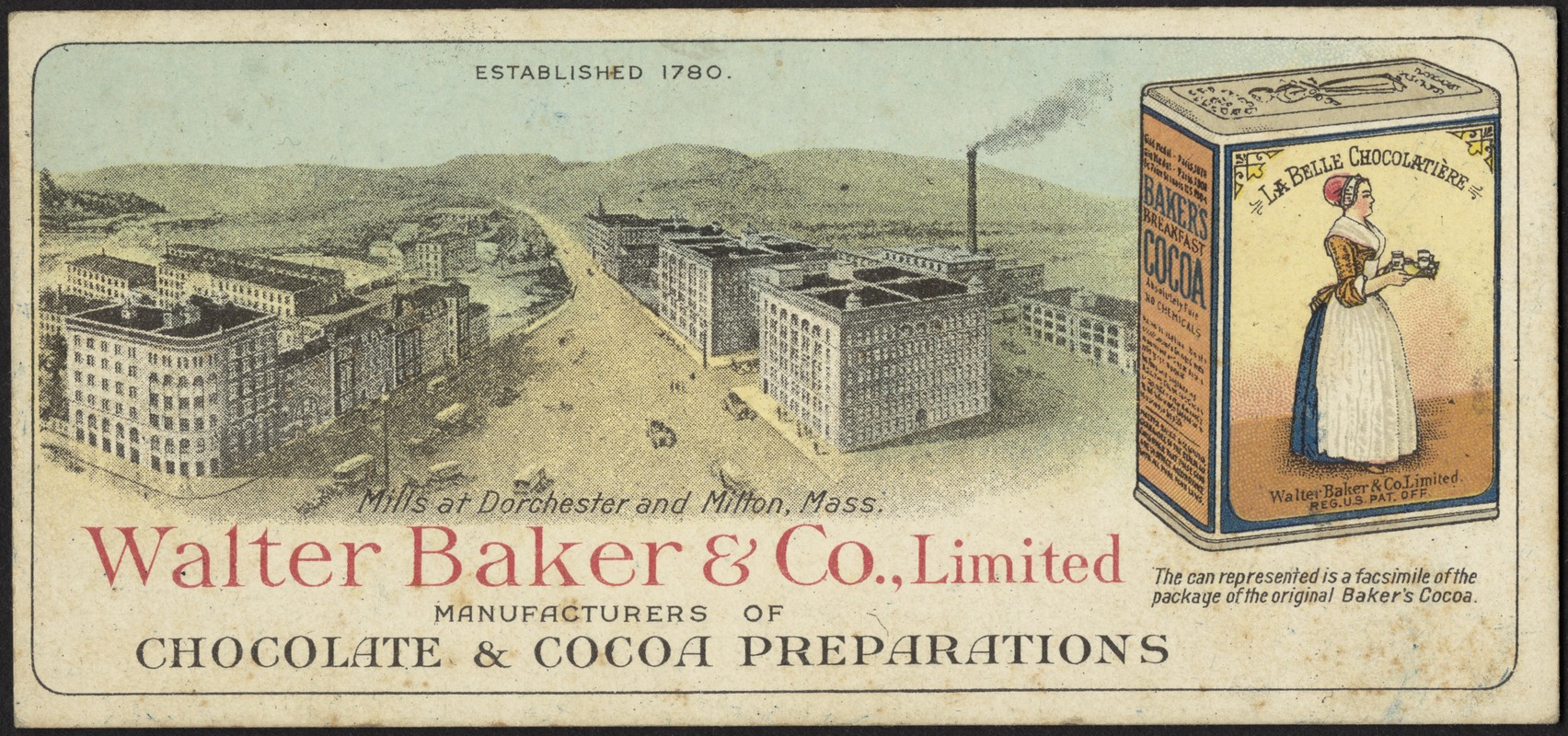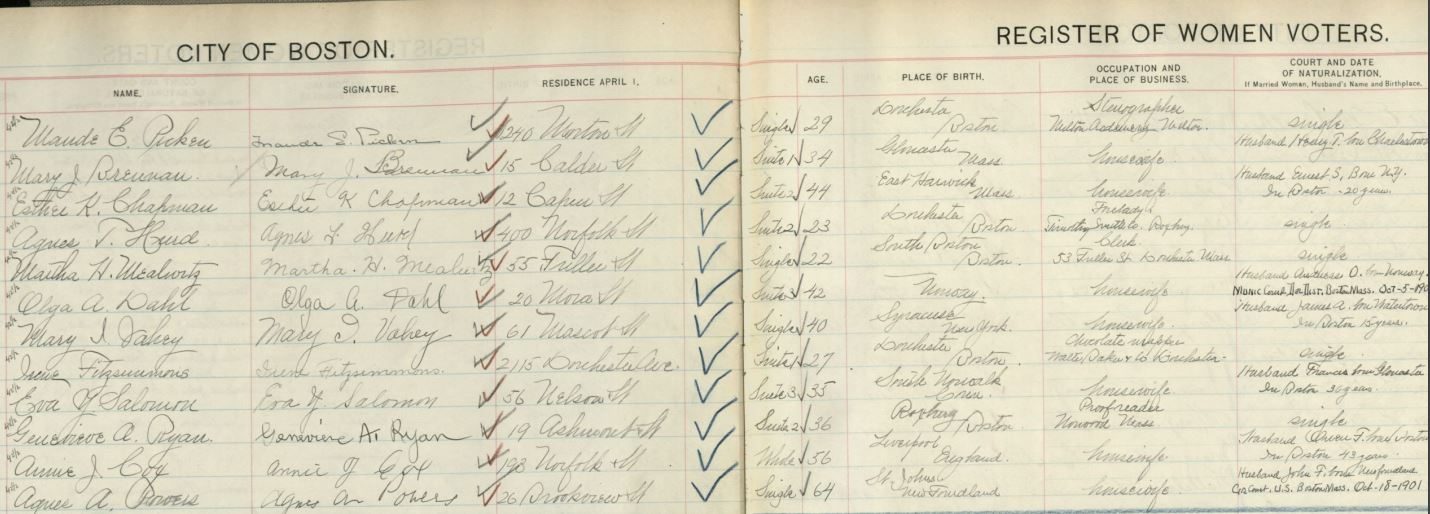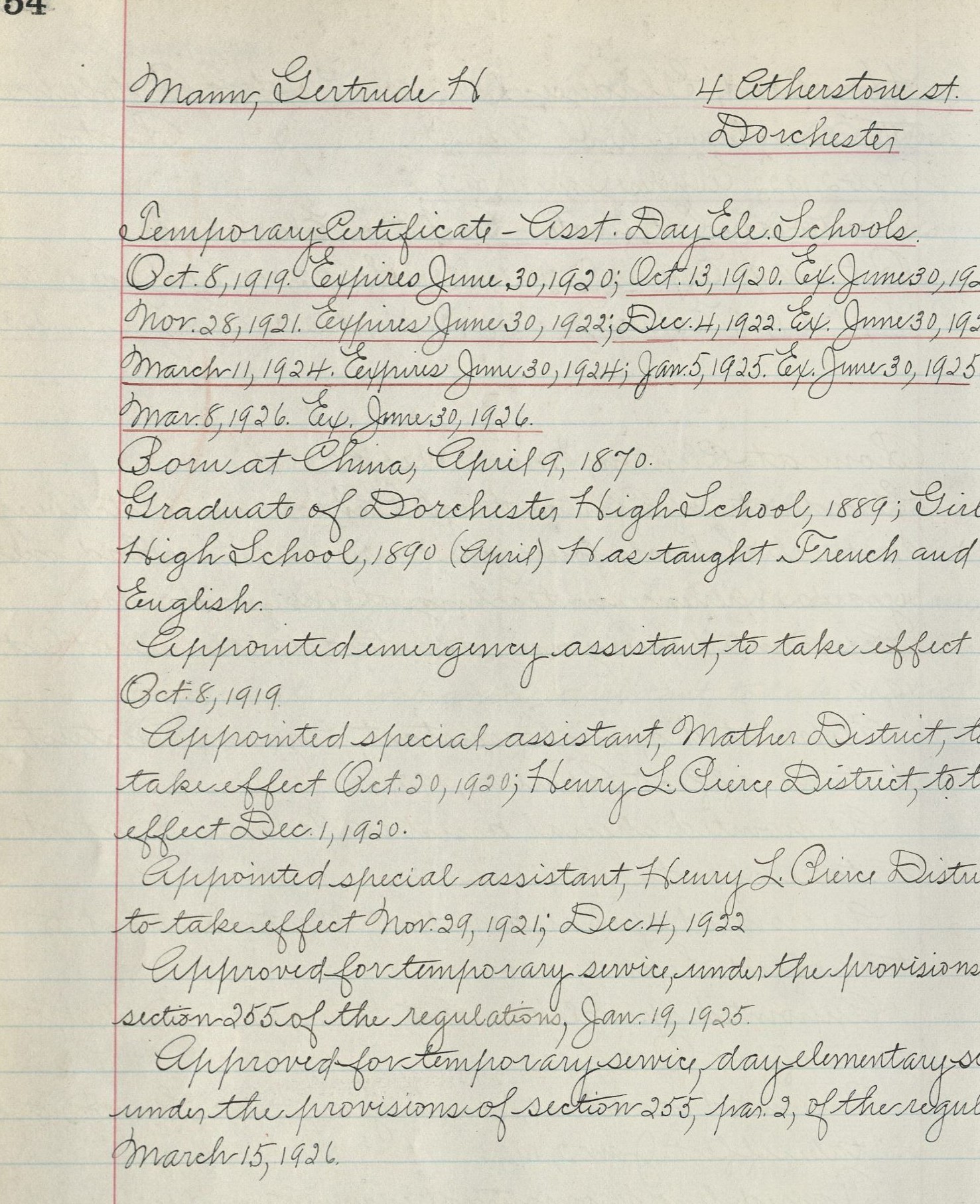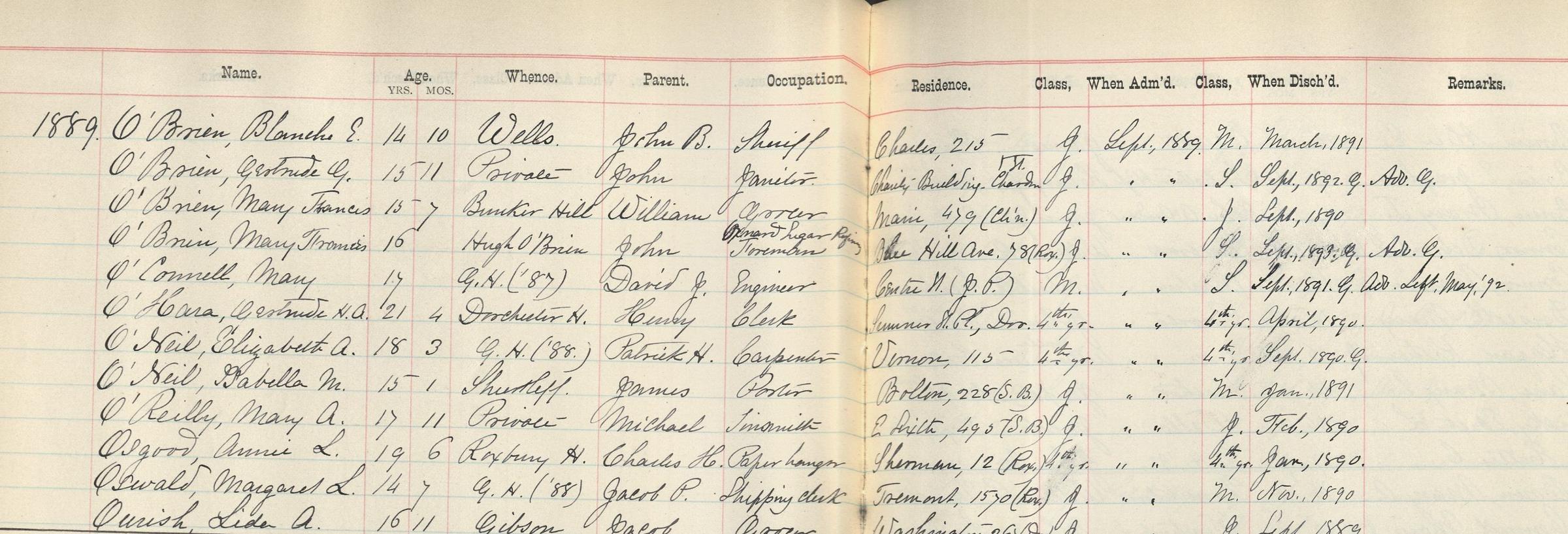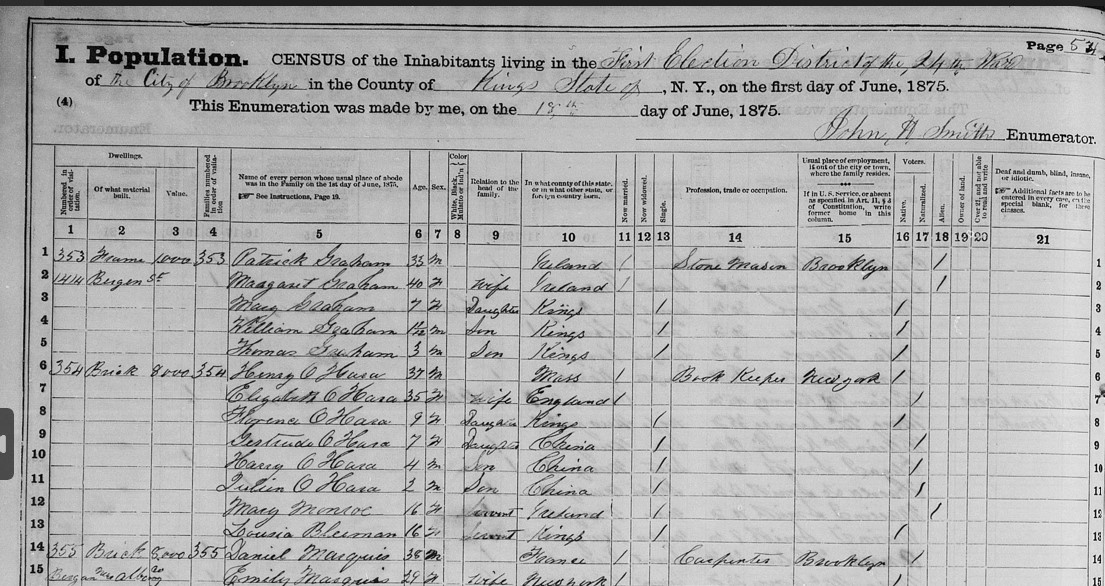The Mary Eliza Project: Ward 21 Voter Records Now Available.
In Dorchester's Ward 21, over 1600 women registered to vote in 1920. We’ve finished transcribing our Ward 21 Women’s Voter Registers and the data is now available at Analyze Boston.
In 1920, after the passage of the 19th Amendment, Boston's women registered to vote by the thousands. The 1920 Women's Voter Registers now live at the Boston City Archives and document women's names, addresses, places of birth and occupations. Sometimes women provided additional information about their naturalization process to become a US citizen, including where their husbands were born because in 1920, a woman's citizenship status was tied to her husband's nationality.
The Mary Eliza Project, named after African American nurse, civil rights activist, and Boston voter Mary Eliza Mahoney, is transcribing these valuable handwritten records into an easily searchable and sortable dataset. We've recently finished transcribing the Ward 21 registers and have added them into our dataset!
In 1920, Ward 21 covered parts of present day Lower Mills and Mattapan. Over 1600 women living in Ward 21 registered to vote between August 17 and October 13, 1920.
While the majority of the women who registered in Ward 21 were born in the United States, almost 400 women recorded birthplaces outside of the United States. We found women born in Russia, Poland, Sweden, Norway, Armenia, England, Ireland, Lithuania, Austria, Poland, Canada, Germany, China, France, New Zealand, and Italy.
Ward 21 women worked for a variety of employers. The Walter Baker Chocolate Company employed many Ward 21 residents, including several women who registered to vote.
Margaret Battell, Jennie Gillespie and Irene Fitzsimmons were neighbors and co-workers who all registered to vote on October 13, 1920, the last day they could register to vote in the 1920 presidential election. They were all born within a year of each other, all born and raised in Dorchester, all single, and all worked as chocolate wrappers at the Baker Chocolate Company. Jennie lived at 2163 Dorchester Avenue, Margaret lived at 2151 Dorchester Avenue, and Irene lived at 2115 Dorchester Avenue. We wonder if they discussed going to register to vote after their shifts ended?
Many of the register entries hint at intriguing stories. We took note of Gertrude Mann's entry. Gertrude, living at 4 Atherstone Street, gave her birthplace as Hong Kong. Gertrude recorded her occupation as teacher and so we looked up her teacher qualification record.
Gertrude's qualification record confirmed her birth in China on April 9, 1870 and also indicated that she was educated at Dorchester High School and Girls High School. We were also able to find Gertrude's record in our Girls High School records.
Prior to her marriage, Gertrude's surname was O'Hara. We can see in her record she graduated from Girls High in 1890, and that her father is a clerk named Henry O'Hara. While this information adds to Gertrude's story, it didn't answer our question of why her family was in China when she was born.
The plot thickens when we look at census records! Gertrude and the O'Hara family show up in the 1875 census in Brooklyn, New York. The census shows that Gertrude's younger siblings, Harry and Julien were also born in China, indicating that they were living there for a longer period of time. Julien was only 2 when the census was taken, and so the O'Hara's must have been in China through at least 1873. Her mother, Elizabeth, is a native of England, while her father was born in Massachusetts.
The 1900 census raises more questions! By 1900, Gertrude had moved out of the O'Hara household, however, her family was still living in Dorchester. Gertrude's youngest sibling, Maude, born in 1880, is listed as being born in Japan! The records show that the O'Hara's were in China from at least 1870-1873, moved to Brooklyn, New York, by 1875, and by 1880, were living in Japan. By 1888, they had returned to the United States and were living in Dorchester, where Gertrude attended Dorchester High School prior to attending Girls High School.
While we've uncovered pieces of Gertrude's story, there is still quite a bit left to investigate!
A key question is why the O'Hara's were travelling back and forth between the United States and Asia. What kind of work did Henry O'Hara do that took him to Asia, bringing his family with him? One possibility is church missions work. Married couples and families often participated in missionary work together, and it wouldn't have been unusual for an entire family to re-locate to a mission. The O'Haras baptized at least one child in the Episcopal Church which had missionaries in both China and Japan in the 1870s and 1880s.
Henry O'Hara also could have been employed as a clerk with any number of merchant or trade organizations. Gertrude's birthplace, Hong Kong, was a thriving port city, home to a large number of international companies who would have had plentiful work for clerks in the 1870s. While Japan would have been home to fewer American workers, the 1880s was a period in which more American companies found a foothold in Japan. Perhaps Henry worked for an employer engaged in business and trade in East Asia, and Elizabeth and the children were unwilling to be left behind. There's more research to be done here!
Gertrude, Margaret, Jennie, and Irene's stories are only a few of the many stories waiting to be uncovered! Dive into the dataset and let us know what you find!

